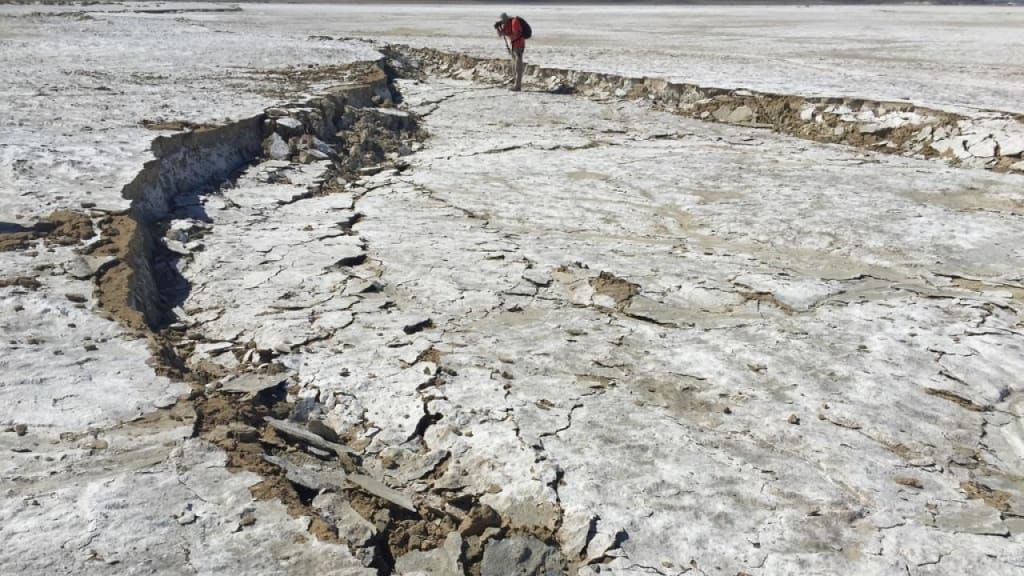Exploring the Phenomenon of Earthquakes on Earth and Beyond
As so far we should know

As you step on the surface of the Moon, you feel lighter and it's easier to walk. You decide to check out that obsessive idea of yours, jump on Earth's natural satellite, and even despite your bulky spacesuit, you literally fly up into the air. Anyway, you continue your walk on the surface of the Moon, but then you feel something strange: the ground under your feet is shaking. It feels as if an earthquake has just started on the Moon, but that's simply impossible, or is it? Surprisingly, your gut feeling hasn't let you down this time. Moonquakes do exist, and there are four types of moonquakes that are strong enough to be detected from a large distance.
There are deep Moon Quakes occurring more than 430 miles below the surface. Then there are meteoroid impacts; thermoques occur when the frigid lunar crust expands. It happens when the morning sun illuminates the satellite after a two-week-long deep freeze lunar night. And there are also shallow Moon Quakes; they're the only ones that are similar to earthquakes on our planet. Shallow moonquakes happen 12 to 19 miles below the surface, and they're the most powerful and dangerous. Between 1972 and 1977, the Apollo's seismic network recorded 28 such Moon Quakes, and some of them measured more than five on the Richter scale. On Earth, such an earthquake is strong enough to crack glass or remove heavy furniture. Moreover, shallow moonquakes are very long-lasting, and compared to earthquakes, once they get going, they can continue for up to 10 minutes. As for the average earthquake, it typically continues for 10 to 30 seconds.
Scientists are still not sure what causes shallow moonquakes, and even where exactly they occur. One of the theories is that moonquakes happen at the rims of large, relatively young craters that probably slump from time to time. Interestingly, the Moon and Earth aren't the only places where earthquakes occur. No scientists have recorded Quakes, Tremors, vibrations, and shakes in other regions of our solar system too.
Let's take Mercury, for example. A few years ago, scientists discovered that this planet was shrinking, and that's why it seems to be so tectonically active. Or Venus, this world is a tectonic puzzle for experts. At the moment, Venus has no tectonic plates, and it might have never had them. But its surface has folds and faults and looks as if it could have tectonic plates. On the other hand, these features might have appeared because of other processes, for example, volcanic activity. But even though we haven't observed any Venus Quakes, scientists believe they could detect them since their vibration seems to ripple through the thick atmosphere of the planet.
Now Mars. We know for sure that this planet is seismically active. NASA's Lander placed a seismometer on the surface of the red planet, and in 2019 it managed to measure its first Mars Quake. After that, the Lander continued to record Quakes, but they were so weak that if they happened on our planet, they'd be completely covered by the background noise of Earth's oceans. But a space body doesn't have to be a full-fledged planet to have active tectonics. Let's take Pluto, this dwarf planet is geologically active at the moment. In 2014, NASA's New Horizon spacecraft was flying through the Pluto system when it recorded complex geological features on this dwarf planet. Scientists concluded that Pluto might have Quakes or should we call them Pluto quakes when its liquid water ocean freezes and thaws beneath the dwarf planet's icy crust.
Finally, one of the most interesting facts about earthquakes is that they can be predicted. Well, sort of. Scientists can't tell you when exactly an earthquake will happen or how powerful it will be, but they can make predictions based on past data and the behavior of tectonic plates. These predictions can give people a heads-up and allow them to evacuate or take precautions.
In conclusion, earthquakes are fascinating natural phenomena that occur not only on Earth but on other planets and moons in our solar system as well. They can cause devastation and destruction, but they can also be predicted and prepared for. Learning more about earthquakes and their causes can help us better understand our planet and its place in the universe.
About the Creator
Robby Rahadi Putra
Apart from my professional work as auditor, I am also an avid writer and reader. I enjoys writing novels and other creative content in my free time, as well as delving into books to expand my knowledge and understanding of the world.






Comments
There are no comments for this story
Be the first to respond and start the conversation.